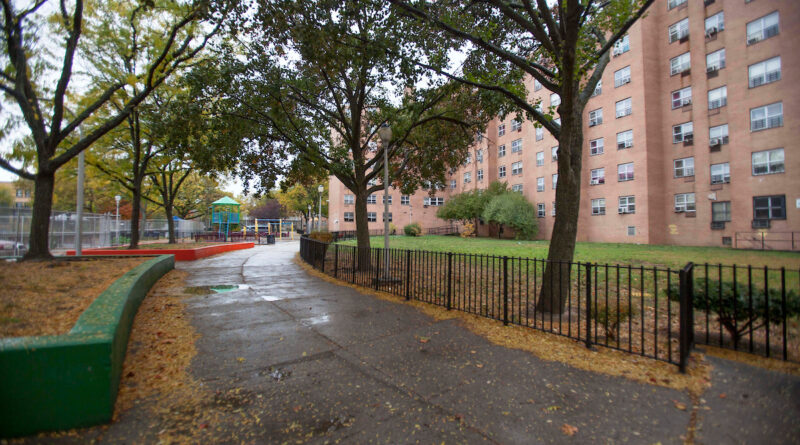Improving the Micro-Purchase Process at NYCHA
Better serving residents and improving their quality of life is at the heart of NYCHA’s transformation efforts. While the vast majority of NYCHA employees show up every day to work hard and do right for residents, a few bad actors unfortunately put their greed first, as evidenced by the recent charges of bribery brought against 70 current and former NYCHA employees; they violated the trust of our residents, their NYCHA colleagues, and all New Yorkers. There is zero tolerance for wrongful and illegal activity, and the alleged actions of these individuals are counter to everything we stand for as public servants.
NYCHA has been working over the past few years to improve the micro-purchasing process. Following a prior investigation, in September 2021 DOI made five recommendations regarding micro-purchases. While NYCHA did not implement DOI’s exact recommendations, DOI’s findings provided the Authority with the direction to undertake considerable, incremental changes and improved internal controls to attempt to mitigate risk, while ensuring developments could provide efficient service to residents, especially when emergencies arise. The procedural, training, and oversight changes that NYCHA implemented reduced spending on micro-purchases for services by nearly half; these measures included:
- Contracting with Dun and Bradstreet for integrity screening services for all vendors (Dun and Bradstreet has provided organizations with valuable procurement process insights for nearly a century);
- Training our property management staff on micro-purchases and ethics in late 2022 and early 2023;
- Rolling out a procurement ethics policy which all staff must acknowledge;
- Increased on-site monitoring visits and reviews of micro-purchases by our Compliance and Quality Assurance teams, which resulted in referrals to DOI;
- Entering into new large contracts that encompassed services previously obtained via micro-purchases to provide staff with alternatives to the micro-purchase program;
- Issuance of pre-qualified vendor lists that could be used to select vendors in place of development staff selecting micro-purchase vendors;
- Updating the micro-purchase process with enhanced forms that require vendors to itemize costs; and
- Enhancing the micro-purchase reporting requirements to increase transparency and accountability.
Fundamentally, we believe that developments need an appropriate level of flexibility to be able to secure the fastest possible service for residents, particularly during emergencies – and government entities, including public housing authorities across the nation as well as other City agencies, commonly use micro-purchases to obtain critical services quickly. In addition to enabling developments to get smaller and lower-cost repairs done expeditiously without undergoing a lengthy and complex procurement process, micro-purchases support our M/WBE and local hiring goals. However, after this clear violation of trust and misuse of authority, we are in the process of implementing DOI’s full suite of 14 recommendations.
All of DOI’s recommendations have either already been implemented or are underway; we expect to fully implement all of the recommendations within a year. For instance, we are currently analyzing how our systems can be adapted to allow staff to upload additional documentation regarding micro-purchases before payment is issued. We are creating additional pre-qualified lists of goods and service providers for use in lieu of micro-purchase vendors; these pre-qualified vendors are required to undergo a vendor integrity review developed by NYCHA and DOI. We are augmenting training for staff and for micro-purchase vendors. Micro-purchases will continue to be reviewed by property management leadership and the Compliance and Quality Assurance departments, and any irregularities will continue to be reported to DOI. The Compliance and Quality Assurance departments will conduct semiannual audits of micro-purchase data and recordkeeping – and will provide greater transparency and accountability into the Authority’s use of micro-purchasing by posting the results of these audits on our website. We are also displaying signs in prominent locations at developments and property management offices highlighting the prohibition of bribes and other criminal offenses and are requiring staff and vendors to acknowledge the same in both paper and digital forms. And most critically, we are planning to implement an alternative staffing model for the micro-purchase program – it will essentially separate the micro-purchase request and approval process from developments, instead placing the review and approval responsibility with specialized staff with the necessary expertise. At the same time, we are examining ways we can ensure the prompt selection of vendors to do essential work quickly with less potential for abuse.
While we work to enact these important structural changes as part of our larger organizational transformation efforts, there will be increased oversight of the micro-purchase program. We believe that with the additional oversight and the implementation of DOI’s latest recommendations, we can continue to tackle this issue and make progress, all in service to residents.
As a reminder, the NYC Employee Assistance Program (EAP) is always available to help employees navigate challenging times. NYC EAP’s team of licensed mental health professionals provide resources and support via phone or online video sessions. EAP services are free, voluntary, and confidential. EAP is available Monday through Thursday from 8 a.m. to 7 p.m. and Friday from 8 a.m. to 5 p.m., reachable by email at eap@olr.nyc.gov or by phone at 212-306-7660. To learn more, visit the NYC EAP website at nyc.gov/eap.







